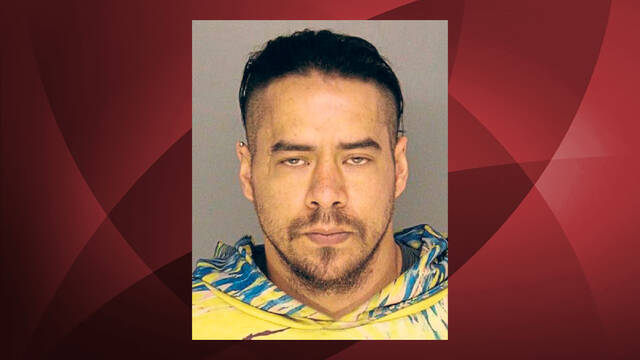An Allegheny County judge on Tuesday refused to follow a state Superior Court order to grant bail to a Sewickley man accused of assault and torture.
Common Pleas Judge Edward J. Borkowski instead held a hearing at the request of the prosecution before finding that Noah Storm Sadowski poses a threat to the community and should be kept in jail until trial.
“The court believes it is substantially more likely than not the defendant will harm someone if released, and no conditions exist to stop him,” Borkowski said.
Borkowski had previously denied bail, and Sadowski successfully appealed the decision to the higher court.
Sadowski’s attorney, Aaron Sontz, said after the hearing that he will again appeal.
“The Superior Court’s instructions were clear,” Sontz said.
Sadowski, 33, is charged, along with Dylan Morris, 30, of Glenfield, with dozens of counts for an April 7 attack on a 60-year-old man.
Police said that the men thought the alleged victim had a gold Rolex watch that had been taken from them, so they attacked him.
They were charged on April 9. A district judge — a lower-level judicial official who makes initial bail decisions after defendants are arrested — denied bail for both.
Bail is primarily meant to ensure that a defendant appears in court, but in some circumstances, it can be denied if it is deemed the only means to maintain public safety.
Both Morris and Sadowski filed a request for bail in Common Pleas Court. Morris was denied on April 18, and Sadowski had a two-part hearing on April 15 and April 25 with Borkowski presiding.
Sadowski presented evidence showing he had support and close ties in the community, meant to demonstrate to the judge that he would have reason to appear for court proceedings rather than skip out on them.
In asking that the defendant remain in custody, the district attorney’s office presented two images of the alleged victim’s injuries and stated that the man was fearful of Sadowski’s potential release. No witnesses were called to testify.
Borkowski denied bond, and Sontz filed an appeal with the state Superior Court. In an opinion on Thursday, the appellate court said that the prosecution failed to present adequate evidence to show Sadowski should not be released.
It remanded the issue to Borkowski to grant bail “pursuant to any conditions of bail imposed as permitted by law.”
But at the start of Tuesday’s hearing, Assistant District Attorney Grant Olson asked that he be allowed to present evidence as to why Sadowski should not be released.
The prosecution’s only witness was the alleged victim.
The man testified that he had been on his porch about 10:15 p.m. that night when Morris and Sadowski rushed him from behind. He knew Morris and had seen Sadowski a handful of times in the past.
The two men immediately shoved a sock in his mouth and wrapped it with blue duct tape before handcuffing him, he said.
Over a period of four hours, the man said, both Morris and Sadowski pistol-whipped him, placed the gun to his forehead and held a butcher knife to his eye and throat. They also burned his chest with lit cigarettes and glued his eyes shut.
He suffered several cuts on his forehead and face, the biggest about 3 inches.
After Sadowski left, the man testified, Morris, who remained behind, threatened to burn his house down and kill his family if he went to the police.
During cross-examination, Sontz tried to minimize the man’s injuries, noting that he was released from the hospital that night and received only sutures. Sontz said that X-rays and additional scans showed no other injuries.
Sontz also repeatedly asked if Morris was the one who threatened the man and physically harmed him.
“They were both actively abusing me at the same time,” the man answered. “They both had knives. They were both threatening me.”
The man told the judge he was fearful of Sadowski being released from jail pending trial.
Sontz presented one witness who testified that Sadowski has no driver’s license, no access to a vehicle, no bank account, no cell phone and would have to transfer four or five times on public transportation to be able to get to Sewickley — if he wanted to harm the alleged victim.
All of that, Sontz argued, tended to show his client was not a threat.
“They have to prove there is no condition or combination of conditions that can reasonably assure the safety of the community,” Sontz told the court. “The commonwealth has not met its burden of proof.”
He also argued that the community could be kept safe if Sadowski, who has no prior violent criminal history, were held on house arrest with electronic monitoring.
But the prosecutor argued that if Sadowski violated electronic monitoring, it could be hours before law enforcement found out.
The judge agreed.
Electronic monitoring “is nothing more than an alert that the person is not in the location he should be,” Borkowski said.
Citing Sadowski’s history of drug use and impulsivity, the gravity of the offense and the likelihood of conviction, the judge called the safety risk “pronounced” and ordered the defendant to remain in custody.








